Understanding Wikimedia audiences in South Africa to achieve knowledge equity
Methodology
- Online survey
- Survey dates: 14-21 October 2021
- Target audience: Online population
- 1,000 South Africans of colour
- 500 nationally representative sample of South Africans for comparison
Context
There are cultural and country nuances in the South African market that are reflected in the language and data in this report, which should be taken into account when reading the report.
- The term ‘coloured’ in South Africa refers to members of multi-ethnic communities, and is officially regarded as one of the four race groups in the country
- Wikipedia awareness is low in South Africa at a total market level. The data only represents the population of South Africans who are online
- We found that the Black population in South Africa is younger (which reflects country government data) and relatively more tech savvy as compared to their White counterparts
- Members of the Black demographic who responded to this survey generally come from a higher socio-economic background of online users, and therefore don’t reflect the total Black population in South Africa
Key Insights
- Black people feel well represented in media, but not as much on Wikipedia
- There is opportunity to better engage and represent South Africa’s coloured demographic
- There is opportunity to improve on the representation of South Africa’s languages on Wikipedia
- There is an opportunity to increase and improve content about physical & mental health
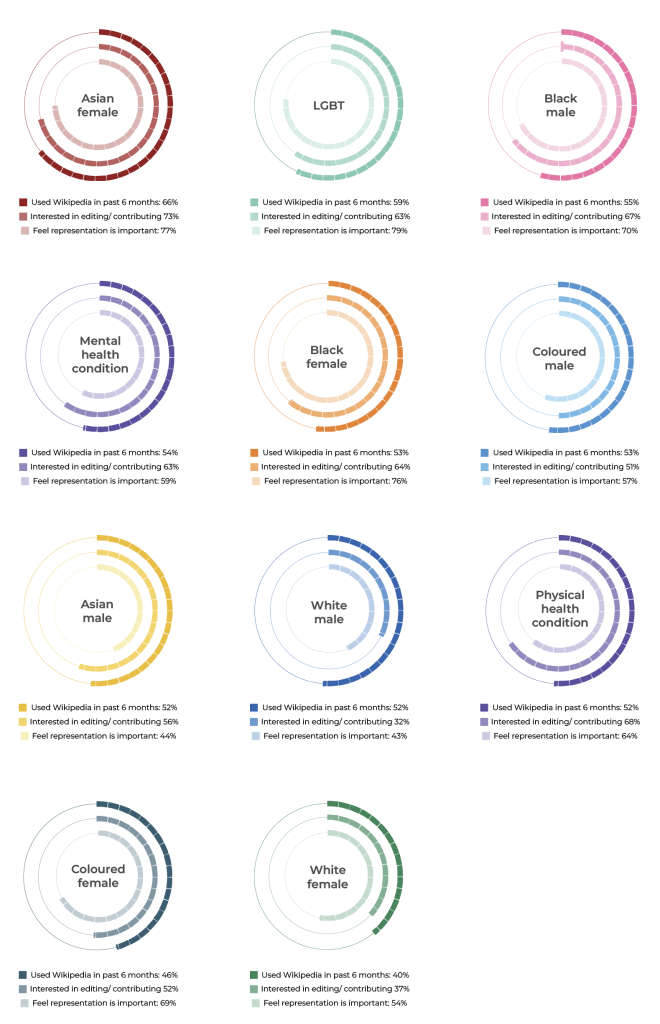
Usage and Awareness
- Coloured men and Asian women are the most aware of Wikipedia
- While Asian women are most likely to use Wikipedia, white and coloured women are less likely to.
- Black people are most likely to use Wikipedia for business, with other groups interested more in history


Perception and Representation
- Wikipedia is seen as not valuing SA specific issues like the AbM (disambiguated as “Abahlali baseMjondolo”) movement, youth unemployment, and black economic empowerment
- Coloured women, LGBTQI+ people and those with health conditions see Wikipedia as having less integrity or empathy, while coloured women and those with health conditions also see Wikipedia as least inclusive
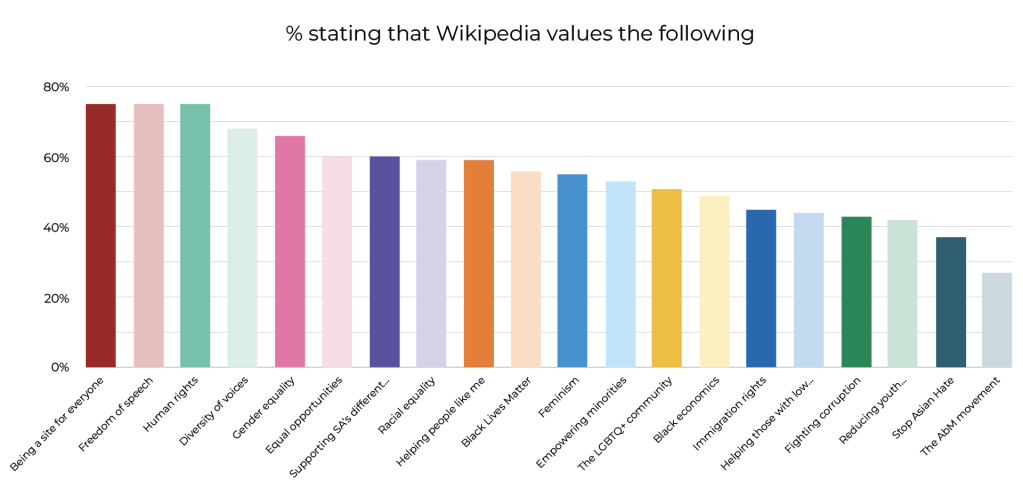
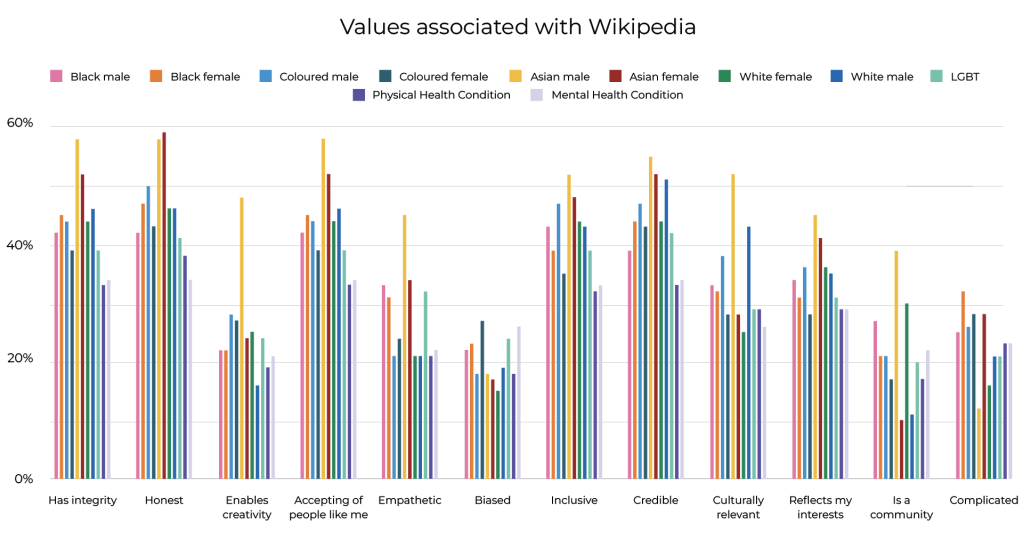
Editing
- Men and those with health conditions most likely to claim have edited, while the members of the white demographic are the least interested in editing
- Coloured people are more interested in editing Wikipedia in order to increase inclusivity & representation
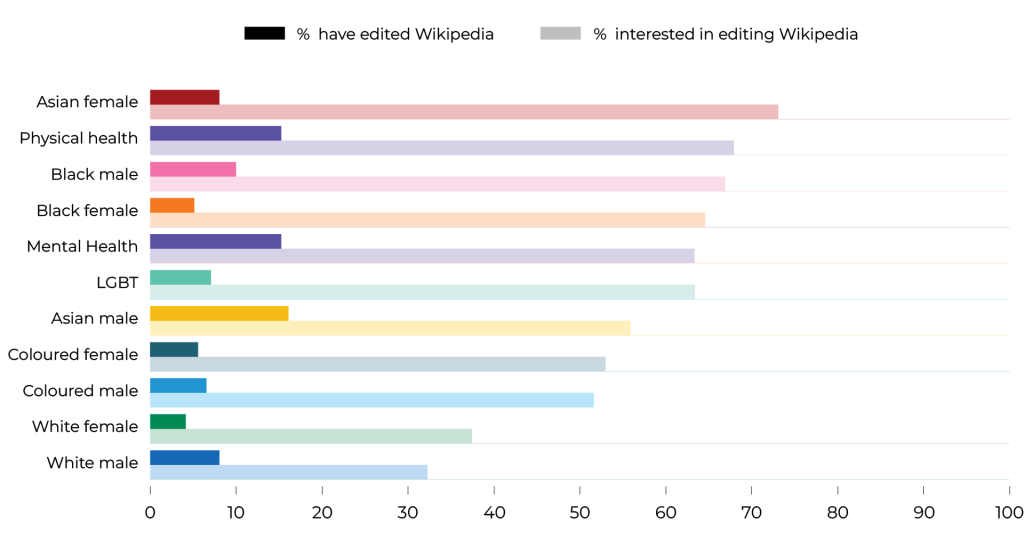
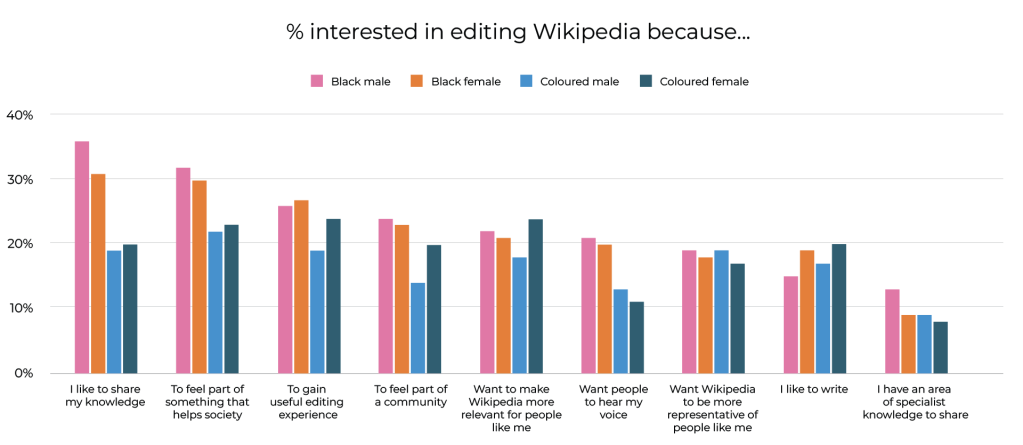
See the complete report
Help us unlock the world’s knowledge.
As a nonprofit, Wikipedia and our related free knowledge projects are powered primarily through donations.
Donate now
Contact us
Follow
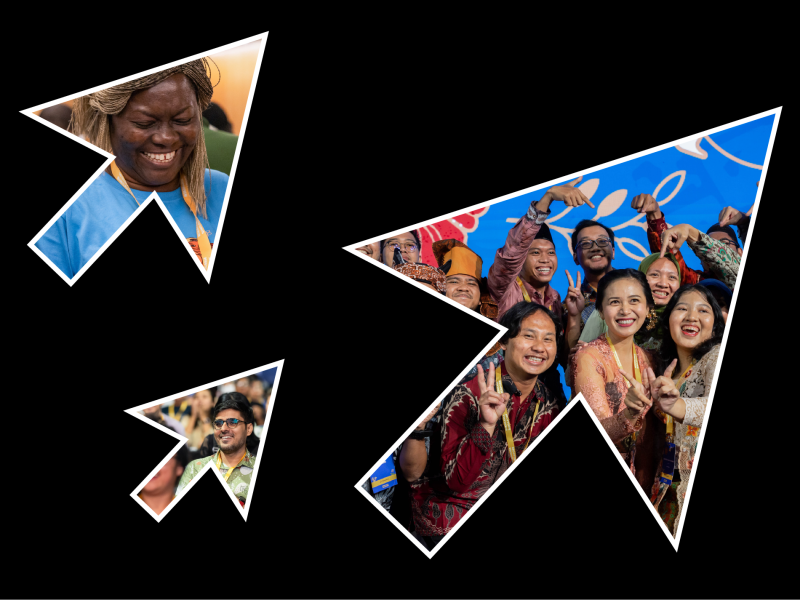
Carta aberta para proteger a Wikipédia e outros projetos de interesse público no Pacto Digital Global
Uma nova carta aberta da Fundação Wikimedia, a organização sem fins lucrativos que opera a Wikipédia e outros projetos Wikimedia, e afiliadas do Movimento Wikimedia ao redor do mundo, apela aos Estados Membros da ONU para protegerem a Wikipédia e outros projetos de interesse público no futuro Pacto Digital Global.
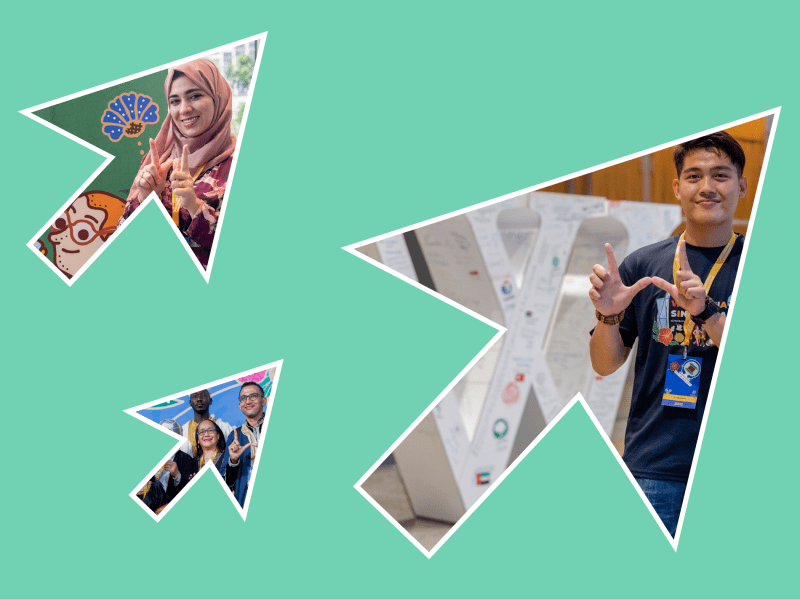
Wikimedia Foundation and global communities call on UN Member States to protect Wikipedia and other public interest projects in the Global Digital Compact
New open letter calls for UN Member States to include three key commitments in the Global Digital Compact that can allow public interest projects and the people who create them to thrive.